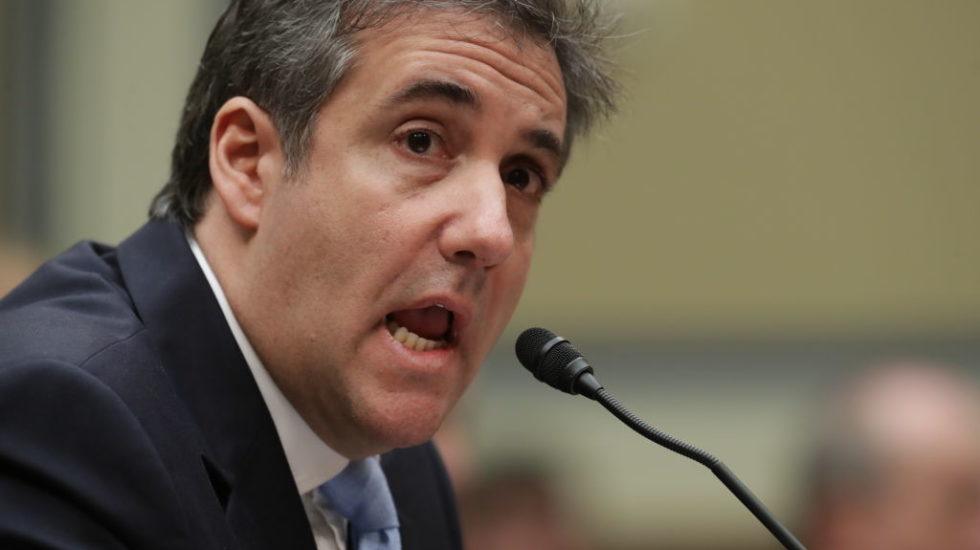President Trump’s former lawyer and fixer, Michael Cohen, aimed several accusations against the president during his Congressional testimony, but in
Then Wednesday, CNN reported it has obtained evidence suggesting that Trump obstructed justice by dangling a pardon in front of Cohen in hopes of steering him away from cooperating with federal prosecutors.
Citing “sources familiar with [Cohen’s] testimony, CNN says the evidence consists of copies of two emails from April 2018 that Cohen submitted during the closed-door portion of his Capitol Hill testimony to corroborate his claims.
Neither email specifically mentions a pardon, the network says, but one told Cohen he could “sleep well tonight” because he had “friends in high places.”
CNN says one of its sources familiar with the emails “said Trump’s legal team was trying to keep Cohen in the fold as a way to keep him quiet, hinting that a pardon could be in the mix at some point.”
The lawyer who wrote the emails, Robert Costello, had been in contact with Trump attorney Rudy Giuliani at the time — and CNN says Costello now calls Cohen’s interpretation of the emails “utter nonsense,” insisting that Cohen was the first to bring up the notion of a pardon. Giuliani also told the network the emails were not about pardons.
“The two completely contradictory narratives come as congressional committees grapple with the issue of a pardon … specifically who initiated the pardon conversations and how far they progressed,” CNN says.
New Yorker magazine jumped into the fray, writing that “This is a really, really big deal. The power to pardon convicted criminals for federal crimes is a legitimate use of presidential authority. Whether it’s legitimate for the president to use this power to pardon criminals who committed crimes on his behalf, or might have otherwise testified against him, is a subject of intense debate.”
“What’s not a subject of intense debate is whether a president can dangle a pardon” in front of a potential witness against him, the New Yorker said, adding that the emails “would be powerful evidence of an undeniable act of obstruction of justice,” and that “Costello might be asked to testify to Congress about it pretty soon.”



